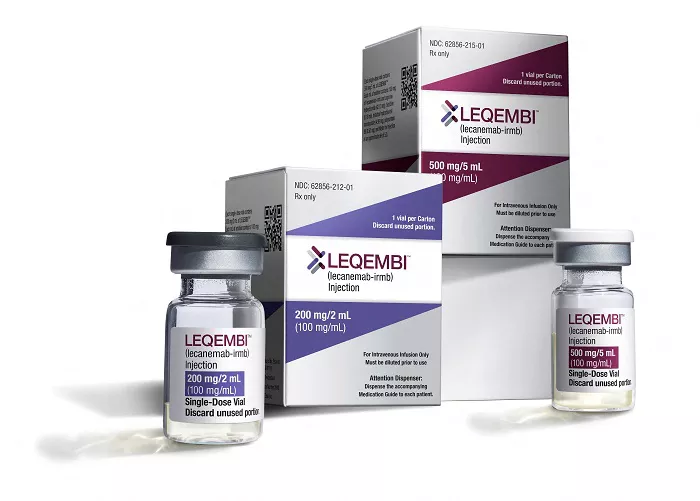For many allergy sufferers, the relief provided by allergy medicine comes with an unexpected side effect – drowsiness. The drowsy, sleepy feeling associated with certain allergy medications has been a topic of curiosity and concern. In this comprehensive exploration, we delve into the reasons behind why allergy medicine can make you sleepy, examining the science behind these effects, the types of medications involved, and strategies for managing drowsiness while still addressing allergic symptoms. Understanding the mechanisms at play sheds light on the delicate balance between relief and drowsiness in the realm of allergy medication.
Antihistamines and the Sleepy Side Effect
The primary culprits behind the sleepy side effect of many allergy medications are antihistamines. Antihistamines are a class of drugs that counteract the effects of histamine, a chemical released by the immune system in response to allergens. While antihistamines effectively reduce allergy symptoms like sneezing, itching, and runny nose, they also have the tendency to cause drowsiness. The reason lies in the fact that histamine is not only involved in allergic reactions but also plays a role in wakefulness and alertness. By blocking histamine, antihistamines inadvertently contribute to a sedative effect, leading to the characteristic drowsiness experienced by many individuals taking these medications.
First-Generation vs. Second-Generation Antihistamines
The drowsiness associated with antihistamines is not uniform across all medications within this class. There is a crucial distinction between first-generation and second-generation antihistamines in terms of their sedative effects. First-generation antihistamines, such as diphenhydramine and chlorpheniramine, tend to have a more pronounced sedative impact. These medications are known for causing drowsiness to the extent that they are often included in over-the-counter sleep aids. On the other hand, second-generation antihistamines, such as cetirizine and loratadine, are designed to be less sedating. While they may still cause some drowsiness, the effect is generally milder compared to their first-generation counterparts.
How do you deal with it?
Blood-Brain Barrier Penetration
The ability of antihistamines to induce drowsiness is closely linked to their ability to penetrate the blood-brain barrier. The blood-brain barrier is a protective barrier that separates the circulating blood from the brain and central nervous system. First-generation antihistamines have a higher likelihood of crossing this barrier, allowing them to exert their effects on the central nervous system more readily. This direct impact on the brain contributes to the sedative properties of these medications. In contrast, second-generation antihistamines are designed to have a reduced ability to penetrate the blood-brain barrier, minimizing their impact on the central nervous system and, consequently, reducing the likelihood of causing drowsiness.
Individual Variability: Why Some People Are More Prone to Sleepiness
It’s important to recognize that the degree of drowsiness experienced after taking allergy medicine can vary from person to person. Individual factors such as age, metabolism, liver function, and overall health can influence how the body processes and responds to antihistamines. Older adults, for example, may be more susceptible to the sedative effects of antihistamines due to changes in metabolism and decreased liver function. Additionally, factors like concurrent use of other medications, alcohol consumption, and individual sensitivity to certain drugs can contribute to the variability in how people experience the sleepy side effect of allergy medicine.
The Impact of When You Take Your Medication
The timing of when allergy medicine is taken can also influence the likelihood and intensity of the sleepy side effect. Taking antihistamines before bedtime is a common strategy to mitigate the impact of drowsiness during waking hours. This approach allows individuals to leverage the sedative effects of the medication to promote better sleep, aligning the drowsiness with a natural sleep-wake cycle. However, for those who need to be alert during the day, taking allergy medicine in the morning may be preferable to minimize the impact on wakefulness.
Understanding the Interplay of Ingredients
In some cases, allergy medications come in combination formulations that include not only antihistamines but also other active ingredients. Decongestants, for example, are often combined with antihistamines to address nasal congestion. It’s important to be aware that certain decongestants, such as pseudoephedrine, can have stimulating effects and may counteract the sedative properties of antihistamines. However, these combination medications can still cause drowsiness, especially when they include first-generation antihistamines. Understanding the interplay of ingredients in combination medications is crucial for anticipating and managing potential side effects.
Individual Responses and Tolerance: Adapting to Medication Effects
Over time, individuals may develop a degree of tolerance to the sedative effects of antihistamines. This means that the drowsiness experienced initially may diminish with continued use as the body adapts to the medication. Tolerance can vary among individuals, and some people may find that the sedative effects persist even with prolonged use. Monitoring individual responses to allergy medicine and consulting with healthcare providers can help determine the most suitable medication and dosage for managing symptoms without causing excessive drowsiness.
Balancing Relief and Wakefulness
For individuals who find the sleepy side effect of allergy medicine bothersome, there are several strategies to manage drowsiness while still addressing allergic symptoms effectively:
Choose Second-Generation Antihistamines: Opt for allergy medications that contain second-generation antihistamines, as they are designed to be less sedating than their first-generation counterparts.
Time Medication Appropriately: Take allergy medicine at a time that aligns with personal preferences and daily activities. For those who can tolerate drowsiness during the day, taking the medication at bedtime may be a suitable option.
Consider Non-Sedating Options: In cases where drowsiness is a significant concern, explore non-sedating alternatives, such as nasal corticosteroids or leukotriene modifiers, which may have a lower likelihood of causing sleepiness.
Adjust Dosage Under Guidance: Consult with healthcare providers to explore options for adjusting the dosage of allergy medication. This may involve lowering the dose or exploring alternative formulations to minimize drowsiness.
Monitor for Drug Interactions: Be aware of potential drug interactions, especially if taking other medications that can amplify the sedative effects of antihistamines. Communicate with healthcare providers about all medications being used.
Explore Alternative Therapies: Consider complementary approaches, such as nasal irrigation or acupuncture, to complement allergy management and potentially reduce the reliance on sedating medications.
Conclusion
In conclusion, the question of why allergy medicine makes you sleepy is rooted in the complex interplay between antihistamines and the central nervous system. While drowsiness is a common side effect, understanding the distinctions between first- and second-generation antihistamines, individual variability, and the impact of timing can empower individuals to strike a balance between relief from allergy symptoms and wakefulness. By considering alternative medications, adjusting dosage under guidance, and exploring complementary approaches, individuals can navigate the landscape of allergy management with a focus on both comfort and alertness. Ultimately, the quest for harmony between relief and alertness is achievable with informed decision-making and collaboration with healthcare providers to tailor allergy management strategies to individual needs.
[inline_related_posts title=”You Might Be Interested In” title_align=”left” style=”list” number=”6″ align=”none” ids=”3158,3156,3154″ by=”categories” orderby=”rand” order=”DESC” hide_thumb=”no” thumb_right=”no” views=”no” date=”yes” grid_columns=”2″ post_type=”” tax=””]


































